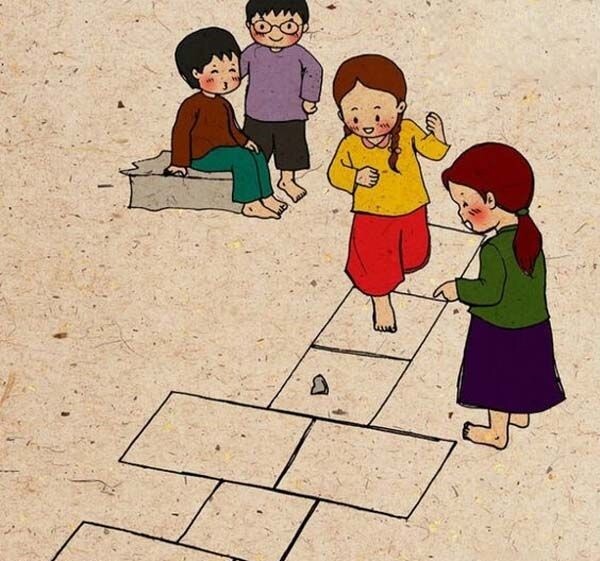A survey conducted by the Institute of Psychology of the Chinese Academy of Sciences on over 30,000 adolescents in the country revealed concerning mental health statistics. The “2022 Survey Report on the Mental Health Status of Adolescents” showed that 14.8% of the population was at risk for depression at various levels.
Every year, during the school enrollment period, appointments for child psychiatric consultations are fully booked in China. Some parents from secondary schools reported that more than half of the students in a class need medication to control depression.


Why were children of the 80s and 90s generation, who experienced food and clothing shortages, less prone to mental health issues as they grew up?
In the past, most children were “free-range” and parental expectations were not as high
According to Maslow’s hierarchy of needs, unmet basic needs can negatively affect one’s well-being. In today’s society, meeting these needs goes beyond material provisions and includes psychological and emotional aspects.
During the 1980s and 1990s, while most families lived in less favorable economic conditions, children were generally raised in a carefree manner. Parents did not have high academic expectations, as long as their children were healthy, which resulted in less psychological pressure for the children.
Furthermore, due to parental preoccupation with work and limited time for childcare, older siblings often took on the role of caregivers for their younger siblings, allowing for a considerable degree of freedom. After-school tutoring was not as prevalent then, leaving children with ample time for play and exploration. Growing up in this relaxed atmosphere allowed for the natural development of their brains and bodies, leading to fewer psychological issues.

In the past, parents had lower expectations when raising their children.
In contrast, today’s children often receive more attentive care from their parents, who typically aspire for their children to pursue a predetermined path to success. The pressure to excel academically, engage in extracurricular activities, and meet parental expectations can create a significant psychological burden. Modern children frequently juggle their time between studying, sports, and social activities, leading to a sense of time scarcity and restricted freedom.
Prolonged exposure to stress can trigger anxiety, depression, and diminished creativity. Research indicates that children raised in high-pressure environments often struggle with problem-solving skills and social interactions.
Children of the past may not have had mobile phones, but they had diverse entertainment options
Mobile phones and the apps they offer can be addictive. Children addicted to mobile phones inevitably miss out on outdoor activities and their associated benefits.
Today’s children may experience a constant dopamine rush while watching videos, creating a temporary sense of happiness. However, after a few hours, this happiness fades, potentially leading to long-term negative emotions and reduced concentration.
In the past, children didn’t have mobile phones or an abundance of toys, but they could entertain themselves. They played with friends, engaging in activities like jump rope, hopscotch, hide-and-seek, and sack races. They even found creative ways to play with dirt. This form of entertainment provided a healthy release of dopamine, fostering genuine happiness and effective emotional outlets.

Children in the past had a variety of entertainment options despite not having mobile phones.
Limited access to technology meant less anxiety for children in the past
In the days of less advanced technology, children had restricted access to external information.
This meant they encountered fewer opportunities for comparison and competition, resulting in reduced anxiety and stress from information overload and excessive benchmarking.
In today’s fast-paced world, information overload is a common phenomenon, and children are exposed to a vast array of information daily. Notably, some violent and negative content on social media can adversely affect young minds.
However, many acknowledge that while life was simpler in the past and joy came more easily, we cannot turn back the clock. Whether we like it or not, we must embrace the natural flow of progress.

How can parents promote better physical and mental health in their children?
Create a positive and optimistic environment for your child’s development
Parents should strive to foster a warm and harmonious family atmosphere, ensuring their children feel loved and supported. Encourage open communication about any worries or negative emotions, and work together to find timely solutions.
Maintain a positive attitude and use it to motivate and instill confidence in your children, helping them approach life with a sense of joy.
Additionally, provide opportunities for your children to interact with peers. This will allow them to benefit from the positive influence of their friends as they grow.
Nurture positive psychological qualities and stress management skills
Encourage your children to try new things and provide affirmation and support to boost their confidence in tackling challenges. Teach them not to give up easily when faced with difficulties.
Introduce them to emotional regulation techniques such as deep breathing and meditation to help manage stress and anxiety.
Allow your children to develop emotional intelligence and become masters of their emotions.
Most importantly, give them the autonomy to make their own decisions and solve their problems. This will foster resilience and independence.

Create a positive and optimistic environment for your child’s development.
Encourage outdoor play and limit screen time
In today’s world, it is unrealistic to completely shield children from mobile phones. However, parents can implement a balanced approach by allowing children to make their own decisions about screen time while also setting reasonable boundaries to prevent excessive usage.
Does Keeping Knives by the Bedside Affect Feng Shui?
The practice of keeping cutlery by the bedside is not a prudent habit. It is imperative to understand that this seemingly innocuous habit can have unforeseen consequences. While it may seem convenient to have easy access to these utensils, there are far safer and more practical alternatives to consider.



































